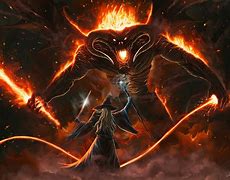
I classify ‘fantasy’ in a fairly broad way, summarized by ‘swords and sorcery;’ you know, mythical lands, wizards and goddesses, brawny barbarians, Game of Thrones. But not necessarily all swords and mythical ages; they can be set in contemporary times, can even have scifi and horror mixed in, but the main characteristic is a nonexistent world that may or may not be human but is definitely not alien in the scifi sense. Yeah, I know, that’s pretty loose but it’s like pornography, you know it when you see it.
(Caveat: A lot of my favorite horror or scifi or what-have-you novels could have easily ended up on this list, but I figure if I’ve already placed it under some other heading somewhere else, then it’s cheating to round out another list with something already spoken of. This way I get to have 40 or 50 top ten book favorites, which I guess is cheating, too, but in a good way).
The fantasy books that didn’t make this list could, instead, make my list of Books Tossed Across Rooms … hmm, make a note. Those include lots of best sellers and big names and award winners, lots of which are just crap. Everything is a Capital Letter or has the Chosen One of the Mysterious Race in the Land of Humbug with Gifts of Humbuggery… you know what I mean. All trope, all checklist, the orphan abused boy or girl who has Powers that will Save the Kingdom. Spare me.
But not these. These are good uns.
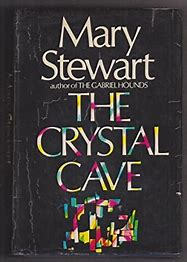
10. The Crystal Cave, by Mary Stewart. An oldie but a goodie, this remains for me the best fictional treatment of the Arthurian legend ever, which is kind of a nothing statement because aren’t all King Arthur treatments fiction? At least we think they are. Told from Merlin’s perspective, this is the story of Merlin’s youth as the despised illegitimate child of a king and a Celtic princess, and how he discovers the crystal caves where his power develops. First of a four-book series that Stewart wrote covering Arthur.
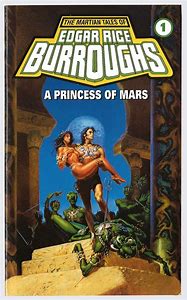
9. A Princess of Mars, by Edgar Rice Burroughs. I know, I know, cheesy writing with female characters right out of a Vallejo painting, but this is still a rousing tale of swashbuckled derring-do and one of those books and series that made me love reading. John Carter, adventurer of Earth becomes, through some odd meditation, an adventurer on Mars, where he fights for every teenage boys’ wildest fantasy, the Princess Deja Thoris. If you can ignore the last thirty years of Martian science, then this is a lot of fun.

8. The Dancers at the End of Time, by Michael Moorcock. Consensus is that this is not fantasy, its scifi, far future scifi at that, and it’s not even one novel but three: An Alien Heat, The Hollow Lands, and The End of All Songs. But, to quote the old shibboleth, magic is just technology we do not understand, and Jherek Carnelian, who lives at the end of time, has powerful tech indistinguishable from sorcery. When a time accident throws him into contact with 19th Century beauty, Amelia Underwood, he pursues her across the centuries with devastating and hilarious results. This is not for the faint hearted because those end of time denizens have lost all sense of a moral compass.
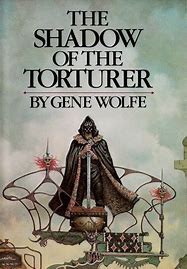
7. The Shadow of the Torturer, by Gene Wolfe. Another one easily classified as scifi, and another first book of a series, called The Book of the New Sun, it is set on the planet Urth …hmm. Severian, an apprentice in the Guild of Torturers, is banished for violating the overriding principle of his guild: never show mercy.
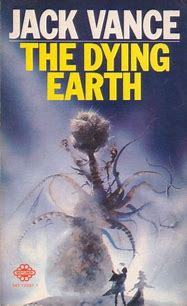
6. The Dying Earth, by Jack Vance. Actually a series of related stories more than a novel, and also the first book of the Dying Earth series, these are tales of wizards and warriors at the end of the sun’s cycle. Sort of like the end of time, except it’s merely the end of the earth. There’s only a few thousand people left by then and all of them are desperate to improve their wizardry so they can dominate everyone else, and the occasional alien who shows up. This book was published in 1950 and had a lot of influence on the creators of Dungeons and Dragons.
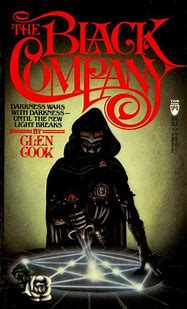
5. The Black Company, by Glenn Cook. The Black Company is a mercenary unit consisting of warriors, tech, mech, and wizards, who fight the enemies of the Lady, who may, or may not, be someone worth fighting for. Rollicking adventure that at times is downright hilarious, this is a combination swords and space opera. This is the first of a series, too, all of the follow-on books well worth reading.
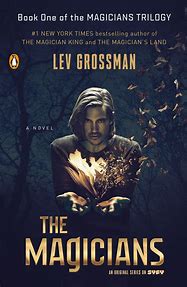
4. The Magicians, by Lev Grossman. This is Harry Potter for grownups, a very dark, downright terrifying version of the magical world versus us poor muggles. Quentin is a sad sack loser whose innate magical ability gains him an application to study at Brakebills academy of magic. What makes this fantasy instead of standard horror is the existence of a Narnia-like world that turns out more Mordor than anything. There’s a pretty good Netflix series based on it.
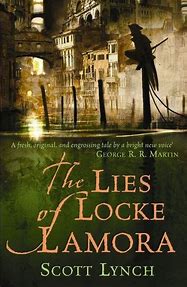
3. The Lies of Locke Lamora, by Scott Lynch. A single-handed revival of the entire fantasy genre, Scott Lynch’s Gentlemen Bastards are the best troupe of lying, thieving, conning conniving lovable blaggards to have slung a sword or stiletto or magical potion since the Grey Mouser. The insults alone are worth the read.
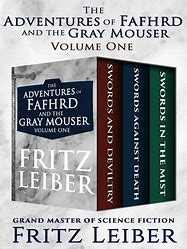
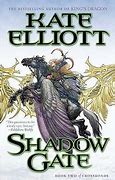
2. Shadow Gate, by Kate Elliott- still my favorite book of her Crossroads trilogy, which I read out of order and grateful that I did because I don’t think I would have got past the first book, Spirit Gate, because it’s fairly standard stuff. But once you get through the first novel of world-building, holy hannah, this is great stuff. Eagle-reeves and Guardians and a horror overtaking the Hundred. And then there’s Mai.
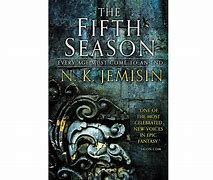
1. The Fifth Season, by N K Jemisin. The first book of the Broken Earth trilogy and the first Jemisin I read and one that blew me away and turned me into a Jemisin fan. The Stillness is a land ironically named, because it is anything but, threatened by periodic life-ending cataclysms that have to be contained by properly trained mutants called Orogenes. But if an Orogene gets away from the cruelty of the Guardians, then things shake up. Literally.